HBOT for Depression
Maintaining mental health necessitates comprehensive, holistic techniques aimed at keeping your body’s vital functions in the greatest possible condition. One of the emerging methods is hyperbaric oxygen therapy (HBOT). Doctors use this therapy for several conditions. To highlight the buzz around, there’s a huge of HBOT in managing depression, and lifting mood is a recent finding. Read more to find out the reality.
Hyperbaric Oxygen Therapy – Working Explained
During a Hyperbaric Oxygen Therapy (HBOT) session, the patient is placed in a special chamber or tube where the air pressure is increased to a level higher than normal atmospheric pressure. In this pressurized environment, the patient breathes in pure oxygen.
This elevated pressure allows the lungs to take in more oxygen than they would at normal air pressure. The oxygen-rich blood is then circulated throughout the body, delivering an increased amount of oxygen to tissues that need it. This process can promote the body’s natural healing mechanisms by stimulating the release of growth factors and stem cells, which are vital for repairing damaged tissues and fighting infections.
HBOT sessions usually last between 90 and 120 minutes and are often part of a treatment plan that includes multiple sessions, depending on the specific medical condition being treated.
While HBOT is generally considered safe, it can have side effects. Some of the potential risks include temporary changes in vision, injuries to the middle ear due to pressure changes, and in rare cases, lung collapse (pneumothorax).
These side effects are usually mild and manageable, but they highlight the importance of undergoing HBOT under the supervision of trained medical professionals.
How Hyperbaric Oxygen’s Effects on Brain Functioning
About 20% of the oxygen in our body is used by our brain, making it a significant oxygen user, as it powers the brain’s processes, oxygen is vital.
Lack of oxygen can impair the brain’s ability to function at its best, resulting in problems like mood swings and trouble focusing or thinking clearly. Hyperbaric Oxygen Therapy (HBOT) may assist with improving various mental processes as well as general mental health by augmenting the quantity of oxygen administered to the brain.
Decreased activity in specific brain regions, including the limbic system and prefrontal cortex, is frequently linked to depression. These regions are essential for controlling emotions and mental functions like memory and decision-making.
Depression symptoms may intensify when these areas are less active. According to research, HBOT may help activate certain brain regions, which may lessen the symptoms of depression by increasing brain activity where it is most required.
Shai Efrati conducted a significant study in 2020 to investigate the impact of HBOT on brain function. According to the study, patients’ brain functions, including attention, processing speed, and executive functions (such as problem-solving and planning), significantly improved after receiving HBOT.
These results imply that HBOT may be an effective means of improving cognitive function and general quality of life in people with specific diseases.
Insights into HBOT for Depression
To expand on the potential of HBOT in treating depression, a systematic review looked at various studies on this topic. This review particularly focused on treatment-resistant depression (TRD), which is a type of depression that doesn’t respond well to typical treatments.
The review concluded that HBOT might be a beneficial alternative or complementary treatment for depression, showing promise for treating even stubborn cases.
Post-Stroke Depression
Another area of research examined HBOT’s effectiveness in treating depression that occurs after a stroke, known as post-stroke depression. The study found that when HBOT was used alongside standard care, patients experienced better outcomes than with standard care alone.
This suggests that HBOT could be a safe and effective supplementary therapy, helping patients recover more fully from post-stroke depression.
Easing Anxiety and Depression with HBOT
When it comes to treating depression, the most common approaches include therapy (like cognitive-behavioral therapy), medication (such as antidepressants), and lifestyle changes (like exercise and diet adjustments). These treatments aim to improve mood and overall mental health.
They might be even more effective when combined with holistic approaches—methods that consider the whole person, including physical, mental, and emotional aspects of health. One such holistic approach is Hyperbaric Oxygen Therapy (HBOT).
Research has shown that HBOT, which involves breathing pure oxygen in a pressurized chamber, can significantly improve nerve function. This is important because mood disorders like depression and anxiety are often linked to the functioning of the nervous system. By improving how nerves work, HBOT might help in managing these mood disorders more effectively.
Depression and Neural Plasticity
Neural plasticity is the brain’s ability to change and adapt in response to experiences. This ability is crucial for learning, memory, and recovery from brain injuries. In depression, neural plasticity is often reduced, which means the brain has a harder time adapting and recovering from stress and other negative influences. This reduction in plasticity plays a significant role in the development and worsening of depression.
The Role of HBOT in Enhancing Neuroplasticity
Some studies have reported that HBOT can enhance neuroplasticity, meaning it helps the brain regain its ability to adapt and reorganize itself. This is particularly important for people with depression, as improving neuroplasticity could support the brain’s recovery from the effects of depression.
For instance, after exposure to harmful substances (like drugs or alcohol), HBOT has been shown to help restore cognitive function by boosting neuroplasticity.
Why Does This Matter for Depression?
People with depression often experience impaired neuroplasticity, any treatment that can enhance this brain function could be beneficial. By potentially increasing neuroplasticity, HBOT may help improve the brain’s ability to heal and adapt, leading to better outcomes for those struggling with depression.
HBOT and Mental Health: Final Note
It is essential to understand the complex relationships that exist between our bodies and brains. Therapies such as HBOT point to a more inventive, scientifically sound, and holistic approach to mental health care in the future. This method gives people who struggle with mental health issues.
Even while the results are encouraging, additional research is still needed to comprehend how HBOT treats depression and elevates mood fully. There are still unanswered concerns about its dosage, long-term consequences, patient selection, and combination with current therapies.




